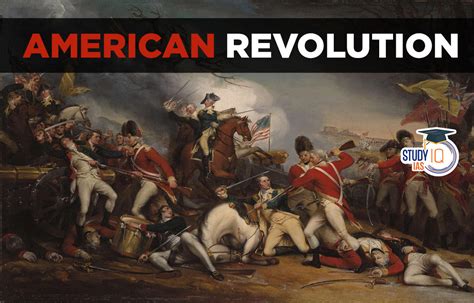The French Revolution, a tumultuous period of upheaval and change in France from 1789 to 1799, had a profound impact on American political thought and discourse. American politicians grappled with the implications of the revolution for their own country, engaging in heated debates and taking varied stances on issues of governance, democracy, and individual rights.

Federalists vs. Anti-Federalists
The Federalist Party, led by Alexander Hamilton, viewed the French Revolution with alarm. They feared that the radicalism and violence of the French revolutionaries would spread to America, threatening the stability and order of the new nation. Federalists advocated for a strong central government with the power to suppress internal unrest and maintain law and order.
In contrast, the Anti-Federalist Party, led by Thomas Jefferson, saw the French Revolution as a symbol of the people’s power to overthrow tyranny. They believed that the revolution demonstrated the importance of limiting the powers of government and protecting individual rights. Anti-Federalists championed the ratification of the Bill of Rights, which enshrined fundamental liberties such as freedom of speech, assembly, and religion.
The Impact of the Revolution on American Politics
The French Revolution had a significant influence on the development of American political parties and ideologies. The Federalist and Anti-Federalist factions solidified their positions, and their disagreements over the nature of government and the rights of citizens shaped the political landscape of the United States for decades to come.
The revolution also spurred debates about the role of public opinion in government. The Federalists argued that the masses were easily swayed by demagogues and that government should be insulated from popular impulses. The Anti-Federalists, on the other hand, believed that the people had the right to participate in decision-making and that government should be responsive to their will.
Geopolitical Concerns
The French Revolution also raised geopolitical concerns for American politicians. The United States was still a young nation, and its leaders were eager to avoid entangling themselves in European conflicts. However, the revolution presented a dilemma: supporting France could alienate Britain, a powerful maritime power with whom the United States had significant trade ties. On the other hand, neutrality could be seen as a betrayal of the ideals of liberty and equality that had inspired the revolution.
George Washington’s Proclamation of Neutrality
In 1793, President George Washington issued a Proclamation of Neutrality, declaring that the United States would remain impartial in the conflict between France and Britain. This decision was a delicate balancing act designed to protect American interests while avoiding a direct confrontation with either side.
The proclamation was met with mixed reactions in America. Federalists generally supported it, while Anti-Federalists criticized Washington for abandoning the cause of French revolutionaries. The neutrality policy ultimately proved successful in keeping the United States out of the war, but it also strained relations with France.
The Impact of the Revolution on American Foreign Policy
The French Revolution had a lasting impact on American foreign policy. It reinforced the tradition of non-intervention in European affairs, a policy that would guide American diplomacy for generations to come. The revolution also highlighted the importance of public opinion in shaping foreign policy, as Americans debated the merits of aiding France or remaining neutral.
Tables:
Table 1: Political Alignments of American Politicians during the French Revolution
| Politician | Party | Stance on French Revolution |
|---|---|---|
| Alexander Hamilton | Federalist | Opposed |
| Thomas Jefferson | Anti-Federalist | Supported |
| George Washington | Nonpartisan | Proclaimed Neutrality |
Table 2: Key Ideological Differences between Federalists and Anti-Federalists
| Issue | Federalists | Anti-Federalists |
|---|---|---|
| Role of government | Strong central government | Limited government |
| Individual rights | Restrictive | Expansive |
| Popular sovereignty | Distrust | Embrace |
Table 3: American Foreign Policy Decisions Related to the French Revolution
| Date | Policy | Impact |
|---|---|---|
| 1793 | Proclamation of Neutrality | Avoided war with France or Britain |
| 1796 | Jay’s Treaty | Friendship with Britain, strained relations with France |
| 1798 | XYZ Affair | Diplomatic breakdown with France |
| 1800 | Convention of 1800 | Settlement of differences with France |
Table 4: Key Figures and Events in the American Response to the French Revolution
| Figure/Event | Significance |
|---|---|
| George Washington | President who proclaimed Neutrality |
| Thomas Jefferson | Leader of the Anti-Federalists |
| Alexander Hamilton | Leader of the Federalists |
| Proclamation of Neutrality | Declaration of non-intervention |
| XYZ Affair | Diplomatic crisis with France |
| Convention of 1800 | Settlement of disputes with France |
